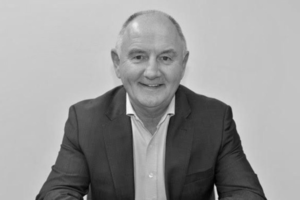The economics behind low interest ratesBY ANDREW WILSON | VOLUME 16, ISSUE 2People often ask why interest rates are so low, what is a negative interest rate and when will rates rise again. This paper explains the economics behind low interest rates, considers ... Get articles like this delivered to your email - Sign up for the free weekly newsletter More Articles |
Latest News
ASIC funding levy to charge advisers $46.2m
The financial advice sector can expect to contribute $46.2 million to ASIC's industry funding levy for the 2025 financial year, new estimates show.
ASIC releases new relief for reportable situations regime
ASIC has provided AFSLs new reliefs to help them manage the reportable situations regime, which includes extending the length of investigations reportable from 30 days to 60 days.
TA Associates invests in Viridian Financial Group
TA Associates announced it will make an undisclosed investment in Viridian Financial Group to help the latter accelerate its next phase of growth.
Shaw and Partners splashes $63m for New Zealand expansion
Shaw and Partners Financial Services, a subsidiary of EFG International, has acquired a 75% stake in Auckland-based Investment Services Group (ISG) for NZ$67.5 million ($62.5m).
Further Reading
Cover Story

Moving mountains
MAGDELINE JACOVIDES
FOUNDER & FINANCIAL PLANNER
MAZI WEALTH
FOUNDER & FINANCIAL PLANNER
MAZI WEALTH
On top of running a successful practice, Mazi Wealth founder Deline Jacovides is a fierce advocate for closing the superannuation gender gap and has built a highly popular social media presence that takes financial literacy to the next level. She tells Karren Vergara where her passion comes from and how she integrates it all with family life.
























Interesting article in that it discusses what should "theoretically" happen. The reality is very different. The RBA has ben reducing interest rates consistently for some time now expecting things to change. It hasn't. Based on this continuing experiment one has to wonder whether the RBA board is in fact showing signs of insanity.
Regardless of how low rates go, consumers are focussing on reducing debt and nothing seems able to change that. One reason is because regardless of what the official rate is, the lenders have not kept pace with the falling rates. In addition to this, wages have stagnated but living costs continue to rise. Name a single utility, food, state or local government charge that has gone down during this period that affects all consumers equally? As a result of increasing living costs in a stagnant wage environment with low interest rates, the best earning potential for consumers is in their offset account.
Australia has a cost problem, it stifles the economy, makes our producers uncompetitive relative to trade rivals and will not be resolved until those at the top of the tree on both the government and corporate sides recognise this.
We, as a nation, cannot afford to continue to fund an ever increasing public service wage bill where PS wages are guaranteed to increase each year when private sector wages don't. That's just one aspect but shows how the unproductive part of the economy is insulated from the issues being faced by the rest. The policy makers don't see the problem because they're not facing them.
Our economy is screwed up and I feel it is because we have in fact lost sight of the fundamentals that make it work. Consumers won't sped unless they know they will have surplus income after meeting their essential living costs. Right now that isn't happening unless you're a public servant who doesn't actually contribute to national GDP in any meaningful way.
What does economic theory have to say about that?